17 People Shared The Worst Financial Advice They've Ever Been Given And It's Pretty Horrific
When it comes to money matters, we've all heard our fair share of good and bad advice.
NBC / Via giphy.com
So when Reddit user u/Miserable-Tea-1836 asked, "What’s the worst piece of financial advice somebody has given you?" a flood of responses came in.
Paramount Pictures / Via giphy.com
We've rounded up some of the most memorable responses, plus reasons why these "money tips" are not so great after all. Check them out below:
No financial advice is truly one-size-fits-all, so always take your own situation into account before making any money moves.
1."One of my uncles once told me that I never really had to pay my phone bill. He suggested that I simply jump to another carrier and let the first company cut me off."

Nope, nope, nope. If you don't pay your phone bill, there can be way-bigger consequences than just having to switch providers.
Your phone bill could end up in collections, which can definitely hurt your credit scores. Without a healthy credit score, doing things like renting an apartment or opening utility accounts can be a lot harder, and you'll likely end up paying higher interest charges on any loans or credit that you use.
2."'Once you cut up the credit card, you don't have to pay it.'"
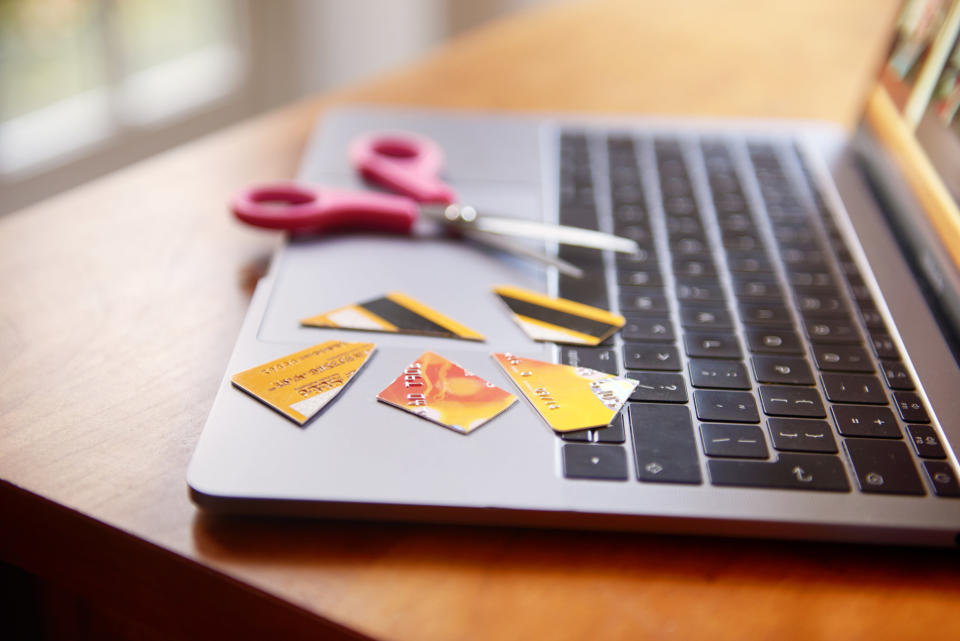
Wow, where do I start? Cutting up a credit card does absolutely nothing to affect the balance you owe. You could set all your credit cards on fire and you'd still be responsible for paying them off.
And much like your phone bill, unpaid credit card bills can go to collections and hurt your credit scores.
BTW, if you're a little fuzzy on how this stuff works, you might wanna check out these handy credit card tips.
3."'Don't invest in a 401(k).' Luckily, I didn't listen."

If you work somewhere that offers a 401(k) or other retirement account as a benefit, it's usually a really good idea to contribute. First, the money you put in will lower your taxable income now, which could give you a bigger refund come tax day.
And if your employer offers to match your contributions, take them up on it and make sure you're putting in the required amount. Why? Because this is one of the few times in life where you can actually get ~free money~. So don't leave it on the table. Your future self will thank you for it.
4."'Let's go to the casino and double your paycheck.'"

Yeah, this tip is probably not the best idea unless you're some kind of card shark.
Generally, casino games are stacked in favor of the house. Sure, it's possible to win, but losing is quite a bit more probable. If you do enjoy gambling, it's usually best not to wager anything that it would hurt to lose — so probably not your whole paycheck.
5."Someone told me they turned down a promotion/raise to stay in a lower tax bracket."
DreamWorks Pictures / Via giphy.com
This is a tricky one (because taxes), but it's also very wrong, at least in the US. We have what's called a "progressive" tax system, so if you move up into the next tax bracket, the higher tax rate will apply only to the amount of your income that's *above* your old tax bracket.
For example, let's say you're single and making $40,000 a year. You're very close to the top of your bracket, which caps out at $40,125. If you get a raise to $42,000, you'll still be taxed the same on your income up to $40,125. Only what you make above that will get taxed at a higher rate. The bottom line? You shouldn't end up making less after taxes if you take a raise.
6."'Take out a student loan. You'll be able to pay it back easy when you have a degree.'"
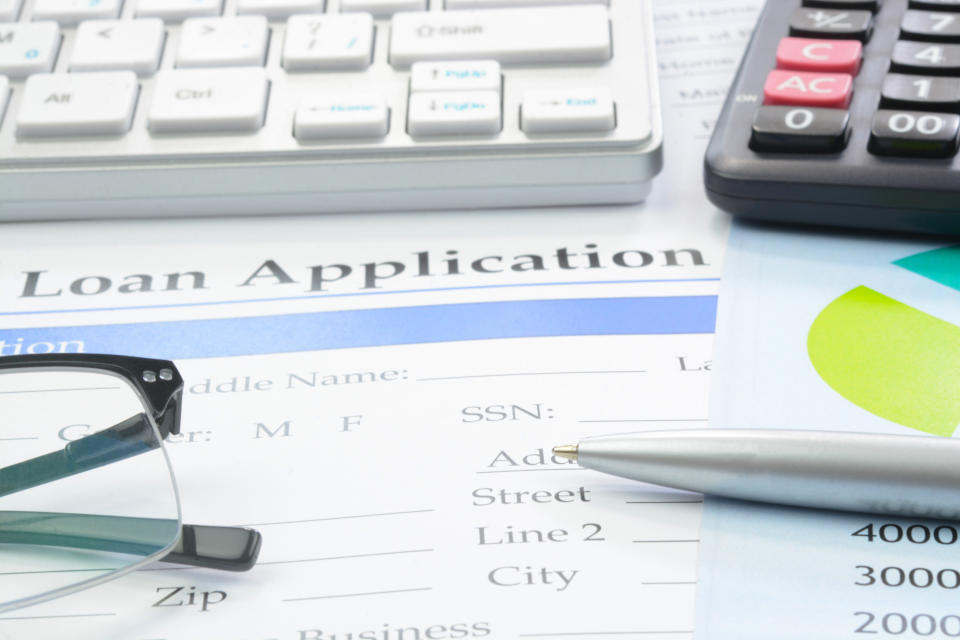
Not necessarily. As anyone with student loan debt can tell you, it can be a huge financial burden.
Going to school can definitely be worth it (and graduates do tend to earn more on average), but it also depends on your career and goals. In addition, instead of relying solely on loans, it's a good idea to talk with your school's financial aid office, apply for tons of scholarships, and consider other ways to reduce the costs of your education, like taking some courses at a community college or choosing a state school over a private uni.
7."That savings accounts were unnecessary. Flash forward to me having enough savings to cover for an emergency while someone had to take out a loan to cover theirs."
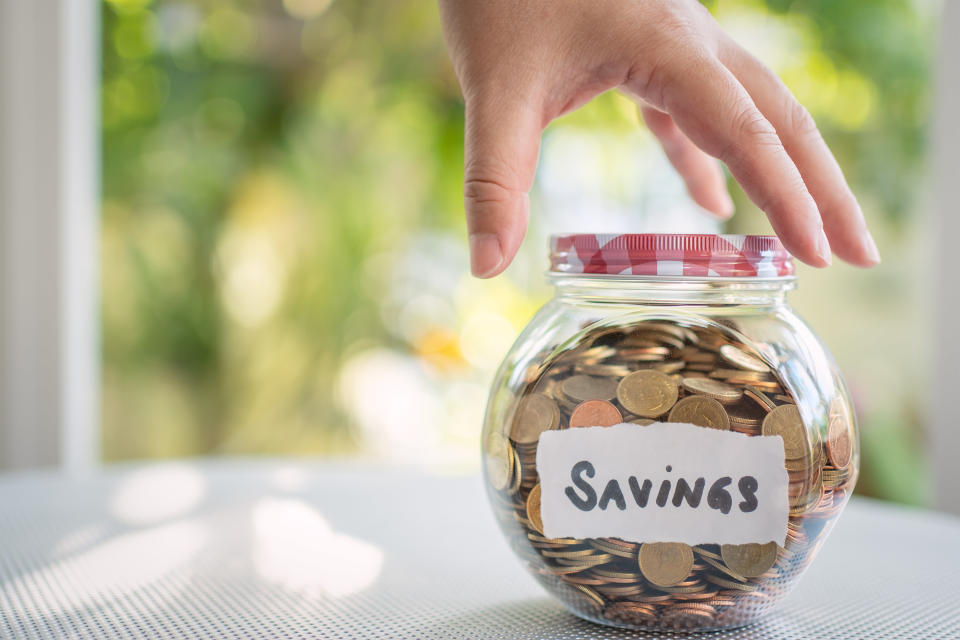
Having some money stashed away in an emergency fund is a great way to give yourself some cushion when surprise bills pop up.
A rainy-day fund never hurts because you never know when (or if) you might actually need it. An unexpected bill might be anything from medical expenses to needing a new car if yours suddenly breaks down. Experts often recommend stashing away three to six months' worth of your expenses for emergencies. If you're just starting to save, set smaller goals along the way, like $500 to start, so you don't get discouraged.
8."'Have a kid first; figure out the finances later.'"
Warner Bros. Pictures / Via giphy.com
While many may say you're never actually prepared for a kid, there are a few things you can do.
From setting up a savings fund for your little one's future college tuition to budgeting how much you'll need for baby essentials each month, doing small tasks like these will help you be better prepared in the long run.
9."'Don’t negotiate your salary. Just accept the offer.'"
Fox / Via giphy.com
When you're excited for a job offer, you may not always think things through right away. But negotiating your salary is something you always want to have at the top of your list.
It all starts with research, so go into the negotiation knowing your numbers. You can check resources like Glassdoor to get an idea of the industry average for people in your role. You can also use these helpful tips from people who asked for more and got it.
10."'Don't pay medical bills; they won't affect your credit.' And I stupidly listened."
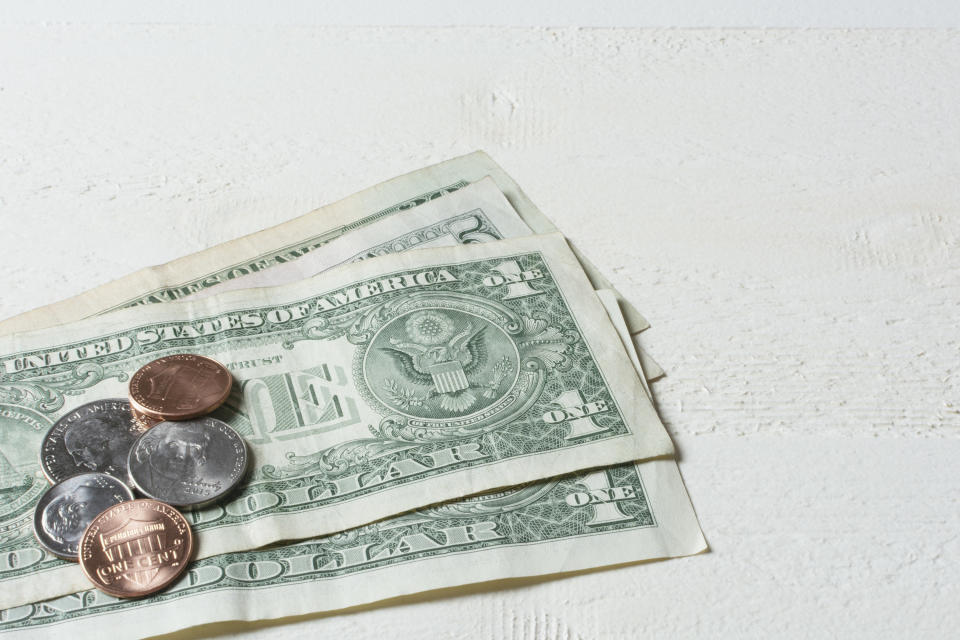
Skipping out on a bill? As we've seen, that's never a good idea.
If you're struggling with a medical bill, reach out to see if an option like a payment plan or extension is possible; that way, you can avoid any bill collector calls and letters for the foreseeable future. And check out these tips on negotiating medical bills down.
11."'It's okay to use cash advance on your credit card.' No, it's not, actually."
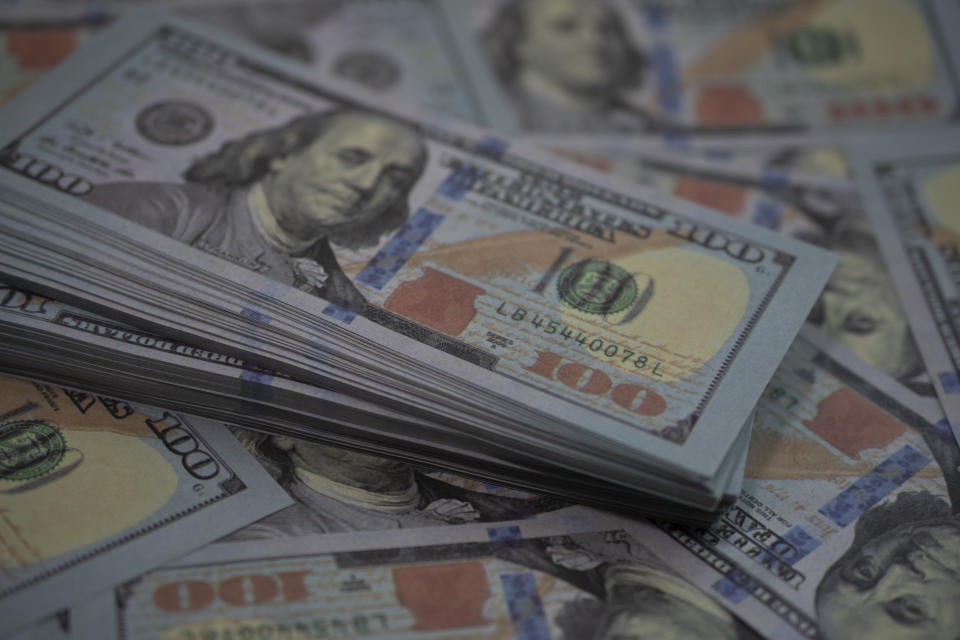
Just because cash advances are an option doesn't mean they're a great option.
These often come with heavy fees and no grace period, which means sky-high interest charges could be closer than you think. Pretty much, cash advances seem nice initially, but the costs really add up (and fast!). A cash advance might come in handy in an emergency, but it's generally best to use one only as a last resort.
12."'Can't afford a new one? Just get it at Rent-a-Center.'"
Nickelodeon / Via giphy.com
Looking to rent a couch or TV to furnish your new place? You could end up paying more than it's worth in fees.
Sure, renting furniture might look cheaper up front, but between rental fees, insurance, and delivery fees, it often works out to be a lot more expensive than you think. If you're looking for furniture for the long haul that won't break the bank, there are plenty of other options, like consignment stores, garage sales, and even Ikea, where you could score some great deals.
13."My aunt took me to a car dealership when I was looking to buy my own first car. I was looking at the clunkers I could afford, but she said I should be looking at the new cars."

"She said, 'The total price doesn’t matter because you make monthly payments.' I suddenly understood too well why she had always been so financially unstable."
When it comes to buying a car (or any major purchase, for that matter), you should never, ever rush into it.
While a brand-new car might be a great option for one person, it doesn't mean that plan necessarily fits your budget. New cars drop in value pretty hard the minute you drive them off the lot, so used cars are often a better deal. From shopping for used cars to negotiating the best deal, buying a car can often seem like a complicated process. Need more help? Check out some helpful car buying tips before you sign that contract.
14."'Spend whatever is in your bank account the day before pay day. You obviously don’t NEED it.'"
Billionfold / Nickelodeon / Via giphy.com
If you're fortunate enough to have money left over after covering the necessities, you might think about saving or investing some before you go on a shopping spree.
Just because it's sitting in your bank account doesn't mean you need to burn it. If your savings and investing goals are on track, then by all means treat yourself! But if there's something in your financial life that could use a tune-up, see if you can put your leftover cash to work.
15."'Just get another credit card.' That's advice from my friend who hasn't worked in three years and is currently just vibing with his new credit cards he somehow got approved for."
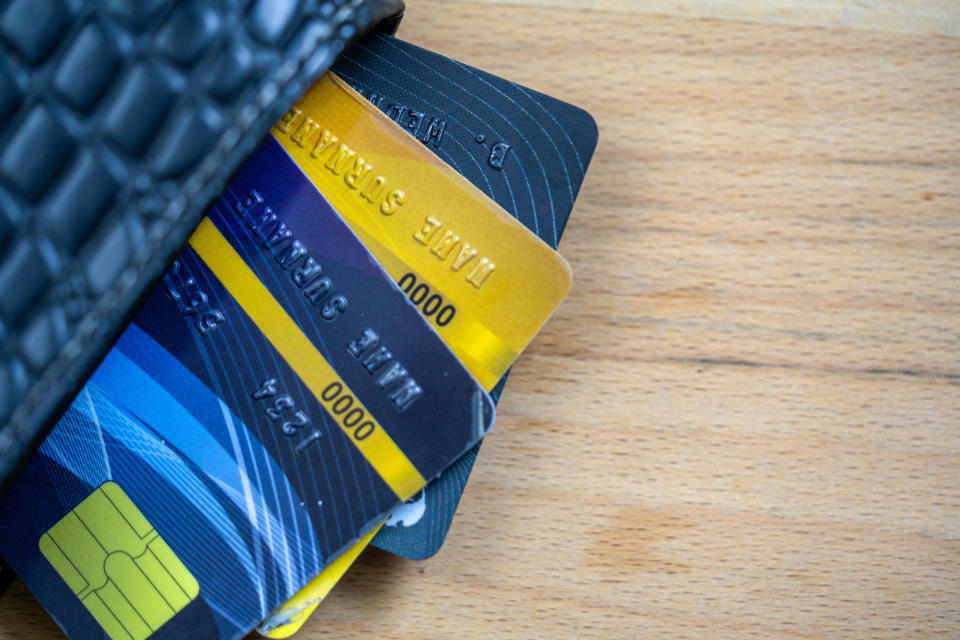
Building credit is great, but living on credit cards without another source of income could lead you into a debt spiral and tank your credit scores.
If you are going to have multiple credit cards, opt for ones where the benefits make the most sense to you. This could be cash rewards, miles for travel, or points. Honestly, the options are endless — just don't overdo it if your wallet isn't ready for another account to be opened.
16."An uncle told me I should spend my money and enjoy life because you only live once, rather than save my money to build up a retirement fund."
Filmation Associates / CBS / Via giphy.com
Although retirement may seem super far away, saving early makes a big difference.
From an employer-sponsored 401(k) to a Roth IRA you can open yourself, there are lots of ways you can put money away for your future. A little bit of investment today can really add up over time. And the sooner you start, the more time your money will have to grow.
17."The worst piece of financial advice somebody has given me is no advice at all. When my dad died, he left a substantial sum of money for me."
Giphy / Via giphy.com
"At this point, I’m pretty sure he probably would’ve been able to have an adviser guide me with my finances once I received this money, but there wasn’t one."
It never hurts to reach out to a pro if you need some financial advice, and it doesn't have to cost you anything.
Not sure where to start? SoFi offers members a free planning session, or the non-profit Operation HOPE also has free counselors available for people on low to middle incomes. Whether you want help with retirement, savings, building your credit, or anything else, it can be so worthwhile to talk to an advisor. Having a plan for your money is always a great way to ensure you're getting the most bang for your buck, and a pro might open your eyes to something that you're missing.
What's the worst financial advice you've ever been given? Share it with us in the comments, and check out the rest of our personal finance posts for more stories about money and careers.
Nickelodeon / Via giphy.com
Note: Some responses have been edited for length and/or clarity.

